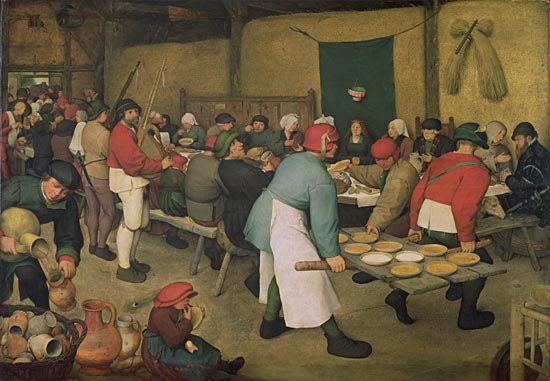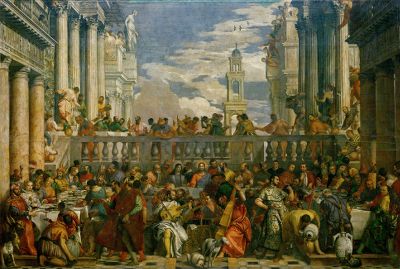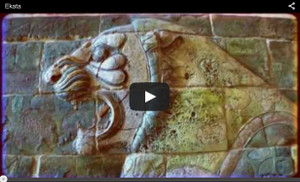The apologue of the transdisciplinary banquet
ONE (multi)
 One day Mr Hardmeat, a wealthy industrialist and leader of a large company, decided to offer a sumptuous banquet to his friends. To ensure a success of the event he began to call all the best chefs in the world, of all specialties, asking each of them to prepare the best dish, the dish in which they excelled in their professional skills. He wanted to impress his guests, and asked them to express themselves to their full capacity.
One day Mr Hardmeat, a wealthy industrialist and leader of a large company, decided to offer a sumptuous banquet to his friends. To ensure a success of the event he began to call all the best chefs in the world, of all specialties, asking each of them to prepare the best dish, the dish in which they excelled in their professional skills. He wanted to impress his guests, and asked them to express themselves to their full capacity.
Then came the day of the banquet and the wealthy host – with much embarrassment and discomfort – saw serving at the dinner table a vast amount of lined up delicacies: eight courses of appetizers but no side-dish, four-courses of meat and just one fish, and finally an excessive and disordered series of desserts, with highly imaginative features. Many cooks brought the same dish while others brought totally unexpected food. The result was that the waiters had to pick up the leftovers of the meal that was more than what was consumed, leaving the guests unsatisfied and perplexed.
TWO (inter)
A few weeks later Mr Hardmeat decided to retry his experiment, but this time he would not make the same mistake: so he called each of the chefs and gave them the phone number of the others, asking them to organize the courses in order to obtain a complete banquet without incurring the drawbacks of the first one.
At that point, the chefs agreed on the type of food to prepare (appetizers, meat, fish, vegetables, pies, consommé, cakes) and the waiters served the second banquet. This time, the excesses and the leftovers were not so obvious, but the room still suffered a mess: dishes (each one excellent in its own specialty), were not adapted to each other and so the guests were served with plates of Italian fettuccine, Arabic spiced roasted lamb with side dishes of Norwegian herring salad, Brazilian beans and Indonesian desserts, all accompanied by a beautiful Japanese sake.
Mr Hardmeat was again disappointed by his convivial experiment.
THREE (trans)
A few months later, Mr Hardmeat came across an old beggar who asked him a few coins to eat. In giving him a substantial offering, the industrialist hoped that the money could make a meal happier than the one he had been able to offer his guests, and nodded briefly to the unfortunate events that he had recently experienced. The comment of the beggar was simple:
“They have to fly over their limits. Ask the cooks to bring their skills on a white tablecloth. “
 Not sure to understand the advice, Mr Hardmeat made a decision anyway. He called all the chefs asking them to show up at his house two days before the next banquet, each one with their own “tools of the trade.” Once the specialists arrived, he took them all in the kitchen, asking that they spent the first day to discuss with each other, before start cooking. The group looked perplexed and many of them proved to be initially reluctant to talk with colleagues, driven by mutual jealousies and ancient prejudices. Finally, after numerous claims by the Mr Hardmeat, they began to work.
Not sure to understand the advice, Mr Hardmeat made a decision anyway. He called all the chefs asking them to show up at his house two days before the next banquet, each one with their own “tools of the trade.” Once the specialists arrived, he took them all in the kitchen, asking that they spent the first day to discuss with each other, before start cooking. The group looked perplexed and many of them proved to be initially reluctant to talk with colleagues, driven by mutual jealousies and ancient prejudices. Finally, after numerous claims by the Mr Hardmeat, they began to work.
On Sunday the third banquet was served, in the joy and jubilation of the guests. Each dish was prepared with a refined model, collecting the best experiences of each cook, in a unique harmony of tastes and smells. The lunch was held as a symphony of instruments perfectly matched and no dish was used in part or simply left as surplus.
In the meantime, in the kitchen, the cooks had started back to talk to each other with great enthusiasm, taking notes and exchanging valuable advices: they had acquired new skills through their interaction, and although each of them had not performed the work in its entirety, they were all together paradoxically participating in the final result.
But – most importantly – they understood the basis of their previous mistakes, and that is, how the concentration on a single plate hid them the harmony of the whole banquet.



In bocca ai lupi! questo si me ricordo degli lingua italiani 30 anni fa…